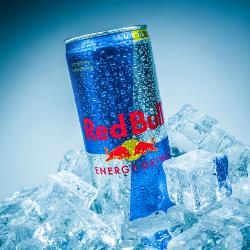 With the third week of March being designated by presidential proclamation as National Poison Prevention Week, this is a good time to focus on the dangers of an easily purchased and commonly consumed beverage that accounted for nearly 3,000 reports to poison control centers in the U.S.
With the third week of March being designated by presidential proclamation as National Poison Prevention Week, this is a good time to focus on the dangers of an easily purchased and commonly consumed beverage that accounted for nearly 3,000 reports to poison control centers in the U.S.
 With the third week of March being designated by presidential proclamation as National Poison Prevention Week, this is a good time to focus on the dangers of an easily purchased and commonly consumed beverage that accounted for nearly 3,000 reports to poison control centers in the U.S. in 2014 — energy drinks such as Red Bull, Rockstar and Monster.
With the third week of March being designated by presidential proclamation as National Poison Prevention Week, this is a good time to focus on the dangers of an easily purchased and commonly consumed beverage that accounted for nearly 3,000 reports to poison control centers in the U.S. in 2014 — energy drinks such as Red Bull, Rockstar and Monster.
Space ranger hero Buzz Lightyear might shout, “To infinity . . . and beyond!” but we’re pretty sure he wouldn’t make that declaration right before he threw back a high-energy shot. On the other hand, increasing numbers of young people are risking serious adverse effects of the buzz from energy drinks, many of them crash landing in emergency rooms as a result of caffeine poisoning. In 2007, emergency departments reported 10,068 visits involving energy drinks; by 2011, that number had more than doubled, to 20,783, according to data from the Substance Abuse and Mental Health Services Administration.
Uncontrolled, Unlimited and Under Wraps
Because energy drinks are considered dietary supplements, they are not regulated by the Food and Drug Administration (FDA) under the same standards as conventional foods. The “active ingredients” in dietary supplements require no FDA preapproval, and in order to take a product off the market, the FDA must prove that it is unsafe when used as suggested in the labeling.
Red Bull, America’s most popular energy drink with $2.8 billion in sales last year, doesn’t offer any consumption suggestions on the label. Nor does it offer complete disclosure of its contents. Calories, fats, carbs, sodium . . . yep, they’re all listed. But nowhere on the label does Red Bull tell you that one 8.4-oz. can contains 80 mg of caffeine. Rockstar Citrus Punched has 240 mg of caffeine in a 16 oz. serving. Energy drink makers can put as much caffeine in their product as they want, and they don’t have to tell you.
The Marketing Message
Brightly colored cans, celebrity endorsements, promises of heightened awareness and abilities, links to extreme sports and athletic excellence — energy drinks are marketed toward young people and others with an active lifestyle.
The problem is not just how and what they say — it’s when and where they say it. Researchers at Dartmouth College identified 10 television channels that devote the most airtime to energy drink ads. Six of them include adolescents in their primary target audience. In the No. 1 spot is MTV2, which aired 2,959 minutes of energy drink advertisements from March 2012 to February 2013. It’s worth noting that the proportion of the MTV2 audience base in the 12-17 age group is 398% greater than that of the average U.S. television network audience.
One concern is that young people are mixing up the message. In a CDC survey of youths aged 12 to 17, 13 percent said they thought of energy drinks as a type of sports drink. It’s a dangerous mistake to make. Sports drinks like Gatorade or Powerade are designed to rehydrate, to bring electrolytes back into the system. Caffeine is a diuretic, however, so highly caffeinated energy drinks cause the body to lose water, contributing to dehydration — not to mention other problems.
Short-term Buzz, Long-term Headache
Caffeine is not in all cases dangerous. The average cup of coffee contains about 95 mg of caffeine, and even chocolate contains caffeine. The issue is that people often consume more caffeine than they realize when drinking high-energy beverages — that and the fact that caffeine affects different people in different ways.
The position of the American Academy of Pediatrics is that “caffeine and other stimulant substances contained in energy drinks have no place in the diets of children and adolescents.” Caffeine in moderate doses is generally considered safe (and, by some, even advisable) for adults. Not so for children or adolescents.
Professionals who attend the 64th Annual Scientific Session of the American College of Cardiology in March 2015 will hear from Mayo Clinic researchers about findings that energy drinks may increase the risk of cardiac events, especially for those who are “caffeine naive.”
There is some evidence that youth who partake of high-caffeine drinks may also partake of other dangerous substances. The University of Michigan’s “Monitoring the Future” study, funded by the National Institute on Drug Abuse, questioned 22,000 secondary school students. Nearly one-third reported using energy drinks or shots. With adjustment for age and other factors, researchers found that those who used energy drinks/shots were two or three times more likely to report use of alcohol, cigarettes, and illicit drugs.
The potential adverse effects of drinking too many energy drinks or drinking one too fast are many:
- Nausea
- Vomiting
- Tremors
- Insomnia
- Headache
- Increased heart rate
- Altered heart rhythm
- Chest pains
- Seizures
- Kidney problems
- Increased blood pressure
- Cardiac arrest.
The nonprofit Center for Science in the Public Interest (CSPI) obtained data from the FDA indicating that since 2004, 34 deaths have been linked to energy drinks — 17 of them since October 2012. Additionally, 115 incidents resulted in hospitalization for problems such as high blood pressure, convulsions, heart attacks, and other problems after drinking energy drinks.
What now?
Many, including the CSPI, are calling for increased regulation of energy drinks. On June 25, 2014, the CSPI sent a letter to the FDA Commissioner urging the agency to take specific actions:
- Issue a public health warning to discourage people, especially those under 18, from consuming energy drinks and suggest to state and localities that they bar the sale of energy drinks to people under 18
- Initiate a rulemaking to require that all beverages consumed in a soda-like manner, including energy drinks, comply with the same regulations that limit caffeine in “colatype beverages” (0.02%, or 71 milligrams per 12 ounces, see 21 C.F.R. § 182.1180)
- Initiate a rulemaking to require warning labels on energy drinks to alert consumers of the possible risk of heart attack, convulsion, and other adverse reactions
- Initiate a thorough and independent study of the safety of these ingredients, both alone and in combination with each other in formulations typical of energy drinks.
On the home front, parents should be certain to discuss nutritional and health concerns with their child’s pediatrician. Often, parents may feel dietary worries are too insignificant to mention to the physician. But with a growing number of health concerns directly related to diet and overall wellbeing, these are issues both parents and healthcare professionals should be actively discussing.
Maybe parents should borrow the approach of Scared Straight. Tell kids about Anais Fournier, the 14-year-old who died from cardiac arrhythmia due to caffeine toxicity after she consumed two Monster drinks at the mall. Or 16-year-old Lanna Hamann who died of cardiac arrest after consuming several Red Bull energy drinks while vacationing on a Mexican beach trip. Above all, think twice before you put energy drinks in the grocery cart. If your child suffers an adverse health event from an energy drink that you purchased, your regret will be insurmountable . . . you might say, to infinity and beyond.







